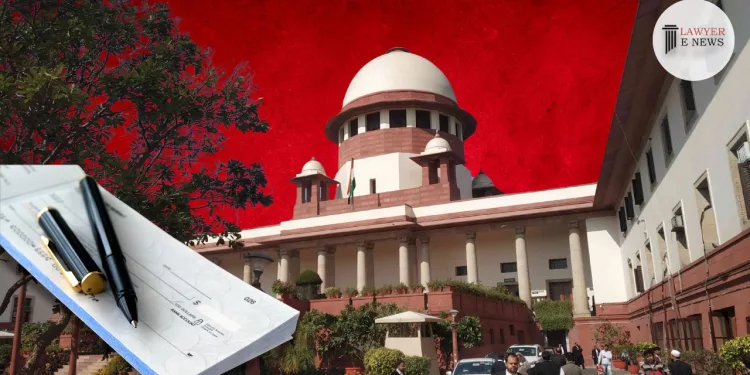Courts Possess Flexibility to Quash Proceedings When Justice Demands It, Even Without Explicit Consent for Compounding U/S 138 N.I.Act: Supreme Court in Raj Reddy Kallem Case

In a notable judgment, the Supreme Court today highlighted its power to quash criminal proceedings in financial dispute cases involving cheque dishonour, emphasizing that justice can be served even without the explicit consent for compounding from the complainant. Justices A.S. Bopanna and Sudhanshu Dhulia stressed the compensatory over punitive measures in cases of cheque dishonour, leading to the quashing of all charges against Raj Reddy Kallem.
Legal Background and Case Facts:
Raj Reddy Kallem faced charges under Sections 138 of the Negotiable Instruments Act for dishonouring cheques, and Sections 406, 420, and 120B of the Indian Penal Code for alleged criminal breach of trust and cheating in a commercial transaction. The legal journey, starting in 2013, saw Kallem convicted in 2015 despite a settlement agreement reached in Lok Adalat that mandated him to repay Rs. 1.55 crores. His initial failure to meet the payment deadlines extended the legal conflict.
Detailed Court Assessment:
The Supreme Court extensively reviewed the principles of the compounding of offences under the Negotiable Instruments Act, emphasizing the importance of the “compensatory aspect of the remedy” over the punitive aspects. The court noted that it retains the flexibility to quash proceedings when justice demands, even absent the complainant’s consent for compounding, reflecting a nuanced approach to justice that prioritizes restitution over punishment.
Quoting from the bench, Justice Bopanna stated, “If we allow the continuance of criminal appeals pending before Additional Sessions Judge against the appellant’s conviction, it would defeat all the efforts of this Court in the last year where this Court had monitored this matter and ensured that the complainant gets her money back.”
The discussion also covered the essential need for consent in the compounding of offences under the Negotiable Instruments Act, juxtaposed against the court’s discretionary power to ensure justice is served comprehensively.
Decision: The apex court quashed all criminal proceedings against Kallem, including pending criminal appeals against his conviction under Section 138 of the NI Act, leveraging Article 142 of the Constitution to deliver “complete justice.” This decision came after recognizing that Kallem had not only settled the principal amount but also covered additional interest for the payment delay.
The directive was also issued for the trial court to transfer the deposited funds totaling Rs. 30 lakhs to the complainant, effectively closing a lengthy legal chapter.
Date of Decision: April 8, 2024
Raj Reddy Kallem vs. The State of Haryana & Anr.




